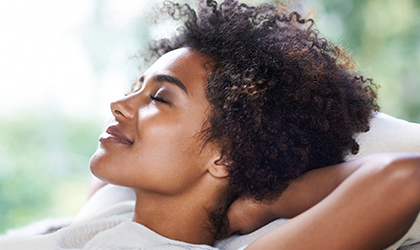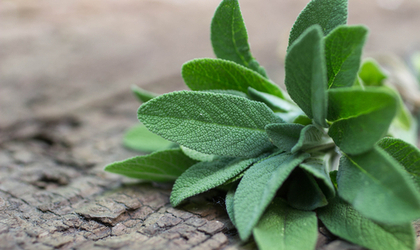
Essential oils are commonly associated with aromatherapy and the positive effect it can have your mental and physical wellbeing! Essentials oils can be used in many ways, from being massaged into the skin, inhaled or added to an aromatherapy diffuser. Just remember these few tips before you get started! When applying the oils to your skin always uses a carrier oil, for example coconut or jojoba oil and do a patch test before applying to large areas of your skin.
Rosemary
We all have it but what can we do to help support our brain power when it’s being challenged or eludes us? The brain is not a muscle, but it does behave like one. This incredible organ can be trained to improve different skills and functions just like muscles can. Giving your brain a daily workout is just as important as 5 (or is it 8, or 10?) a-day pieces of fruit and veg, and as essential as that 30 minutes of exercise (minimum) a day. So, what does brain training look like? The likelihood is that you give your noggin a pretty taxing routine throughout the day when you’re working, making decisions or trying to organise your family life. But routine is the problem. Like muscles the brain gets used to repetitive behaviour and it ceases to be a challenge, so it gets lazy. Give your think tank something new to learn and test its abilities and it will be a very happy noddle indeed!
Eating a brain boosting diet is of course the core advice to support cognitive function. As is good quality sleep and physical exercise. But the brain likes teasers to chew on, like crosswords, Sudoku, or something new like learning a language, a new hobby or a challenging read.
Believe it or not but rosemary essential oil has been used in folk medicine for hundreds of years in connection with memory. Studies into the link between Rosemary oil and memory revealed that the active compound 1,8-cineole may be responsible for changes in memory performance. Rosemary even gets a mention in Shakespeare’s Hamlet; “There's rosemary, that’s for remembrance, pray you love, remember.”
Whether you’re studying for an exam, feel that age is creeping up on you or need a little more edge, why not try diffusing some Rosemary essential oil in to your life and perhaps note the difference!
Tea Tree
Tea Tree is not an oil that you would necessary diffuse to tickle the olfactory system, it has a medicinal scent, which is why being a perfume doesn’t suit its character. Instead, this practical essence is more likely to appear in your first aid kit as it is often used to treat skin complaints, used as an antiseptic or to soothe bites and burns. This bathroom cabinet staple is a true genius and is so popular today that even a certain newly appointed Princess carries a bottle in her handbag!
As one of the most expansively investigated essential oils, Tea Tree has an impressive portfolio of research, in fact over 600 scientific studies have been documented. With compounding evidence to support its therapeutic properties, it’s no wonder you’ll find Tea Tree in shampoos, cosmetics, household cleaners and even in fungal foot treatments.
Did you know?
Plants produce a defence system of compounds called secondary metabolites. They can be repellent, protective or attractive. Essential oils stem from these metabolites. Caffeine, cocaine, rubber and morphine are examples of metabolites.
Lavendar
Ahhh the beauty of a good night’s sleep. The gummy bliss that you recall from your youth, where you had few worries and no responsibilities. Sleep wasn’t something that you had to work at, it just came, like a wave to the shore. If you are still one of the lucky ones where this is commonplace, you’ll need to read no further! If, however, you are in the 35% of Brits who suffer with sleeping problems then you’ll know that you’ll try almost anything to get a little shut eye. According to The Sleep Council’s Great British Bedtime Reporti the top results for causing sleep disturbances are:
-
47% Anxiety or stress
-
22% A noisy partner
-
18% Noise
-
13% Uncomfortable bed
With poor quality sleep affecting energy levels, mood, health, relationships and work performance, it’s time to consider your options. Aromatherapy is not a cure to sleep disturbances, but it just might take the edge off the frustration of not being able to get a good night’s rest. The relationship between essential oils and supporting sleep is simply to help calm and relax you so that you are better prepared for those bedtime zzzz’s.
Our number one favourite oil is Lavender, probably because it is so versatile, smells amazing and has sedative properties. A great oil to have in your sleep support tool kit. It is also one of the safest oils to use as it can be applied topically to sooth and cleanse. If you struggle to get your head down, then why not try one of the following bedtime tips using lavender essential oil.
Add a few drops of lavender essential oil to a cotton wool ball and put it next to you bed. You will notice the aroma so inhale deeply and let sleep prevail.
If sleep dodges you faster than a speeding bullet, then you’ll be very familiar with the advice that having a warm bath is a wonderful way to relax and get ‘sleep ready’. Adding a few drops of lavender oil to your bath water adds another layer to this sleep preparation. Or why not try and make our relaxing pillow spray?
Sole siesta – according to some essential oil aficionados the best place to apply essential oils is to the soles of the feet. Why? Well, the soles of the feet have larger pores than anywhere else on the rest of the body, allowing the therapeutic value of the oils to penetrate deeper and faster into the skin.
Did you know?
The soles of your feet, and the palms of your hands don’t contain any sebaceous glands. Sebum creates an obstruction and impedes the absorption of essential oils. So, it really is feet first into that good night!
You Might Also Like

Keri
Keri Filtness has worked in the Nutrition Industry for 19 years. She is regularly called upon for her professional comments on health and nutrition related news. Her opinions have been featured by BBC3, Prima, Vitality, The Mirror, Woman’s Own and Cycling Weekly, amongst others. She has also worked one to one with journalists, analysing their diets and health concerns and recommending changes and additions, where appropriate.
View More



